Dhaka, July 6 (V7N) – Speakers at a discussion in Dhaka have called for justice for the 57 patriotic army officers who were killed in the 2009 Pilkhana massacre, and for those military and security officials who, in the years since, have been victims of enforced disappearance, extrajudicial killings, imprisonment, torture, and arbitrary dismissal.
The discussion, organized by Nexus Defence and Justice, was held Saturday at the National Press Club. Participants described the previous government as a “fascist regime,” alleging that from 2009 to 2024, Bangladesh witnessed widespread violations of fundamental rights, including the silencing of dissent, rampant corruption, political oppression, and frequent human rights abuses.
Speakers claimed that the state apparatus was used to target conscientious officers and citizens alike. “There was no freedom of expression. Life under that regime felt like life in a prison for anyone who dared to speak the truth,” one speaker said.
Many high-ranking and mid-level officers, they stated, were either arbitrarily terminated, subjected to custodial abuse, or forced into silence under the threat of severe repercussions. The Pilkhana massacre, in particular, remains a point of deep national trauma, with participants expressing frustration over the lack of full justice for the killing of 57 army officers during the BDR mutiny.
Speakers at the event demanded fair compensation and reintegration for dismissed and persecuted officials, as well as criminal accountability for those responsible for the enforced disappearances, unlawful terminations, and killings.
The meeting was presided over by retired Brigadier General Mohammad Hasan Nasir, president of Nexus Defence and Justice. Professor Dr. Hasanuzzaman Chowdhury, former chairman of the Department of Political Science at Dhaka University and a noted security analyst, served as the chief guest. Other notable speakers included Professor Taj Hashmi, journalist Dr. Kanak Sarwar, and retired Colonel Mostafizur Rahman.
The gathering called for national reflection on what they described as a dark chapter in Bangladesh’s governance, urging the current authorities to ensure that justice is not delayed or denied to those who served the country with loyalty.
END/MRB/SMA/



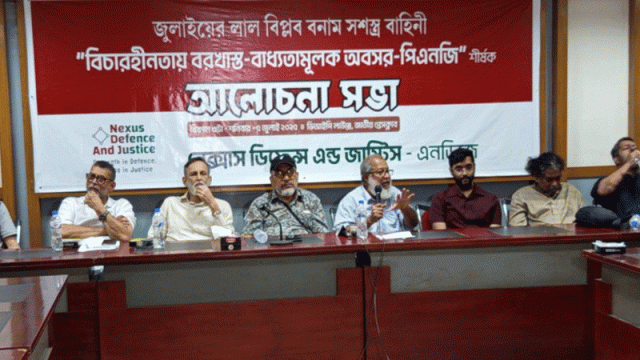
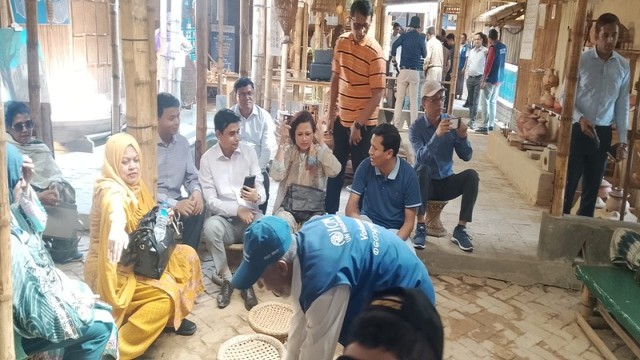
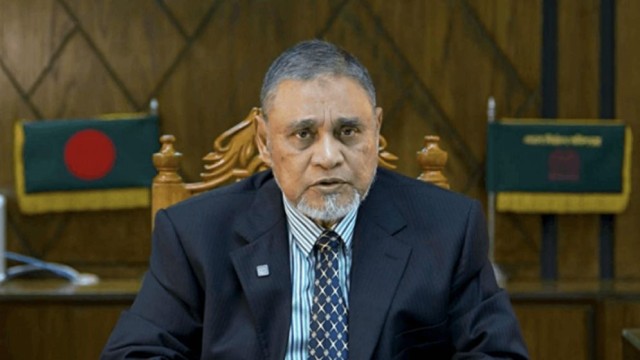
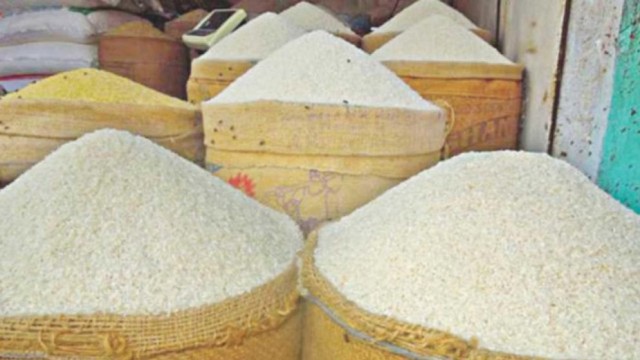
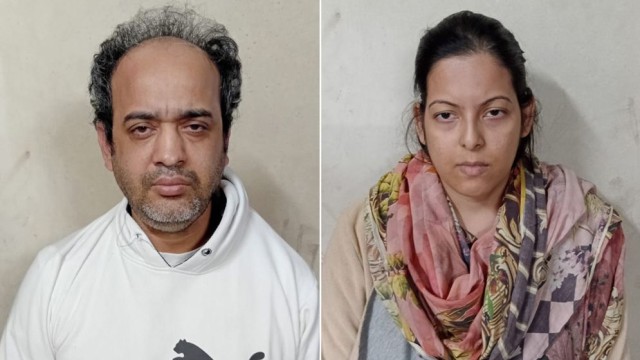

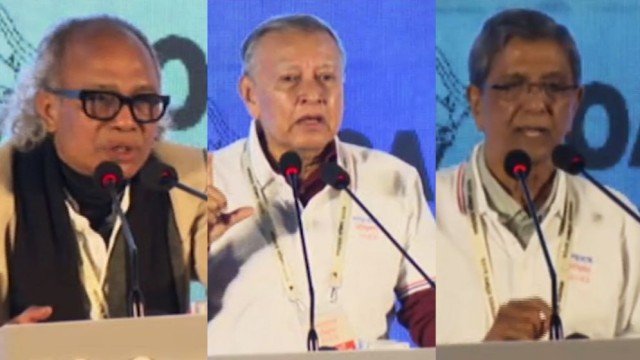
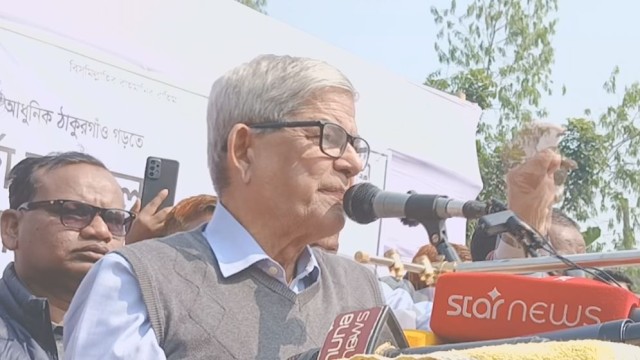
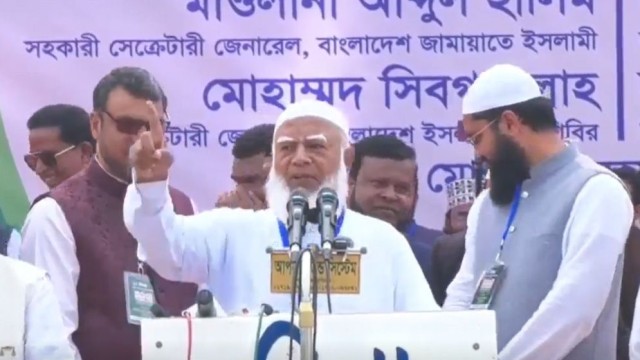

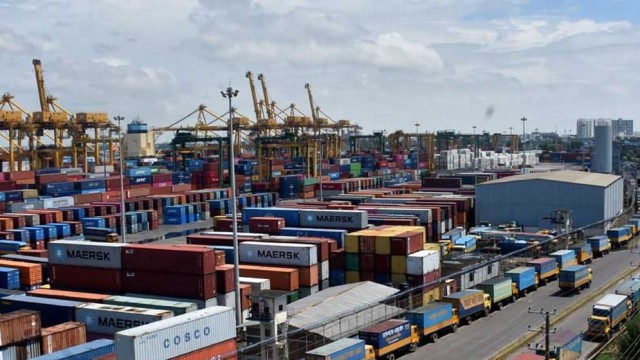
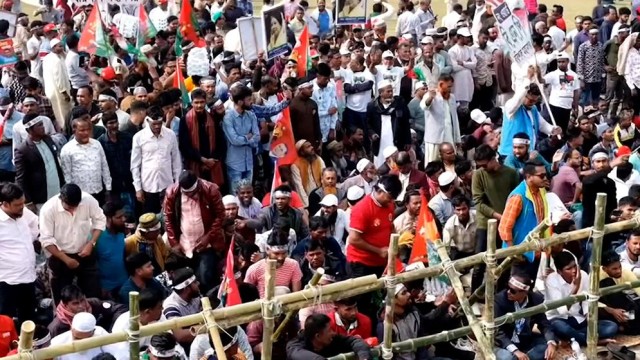
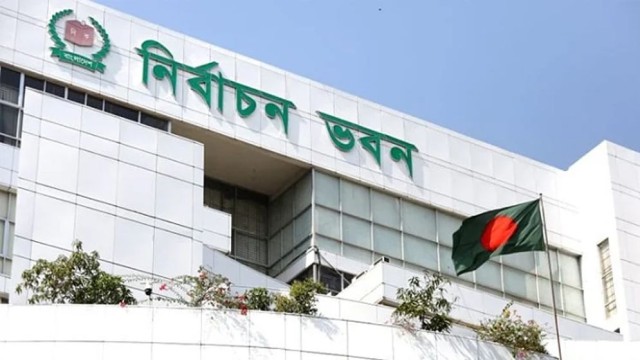
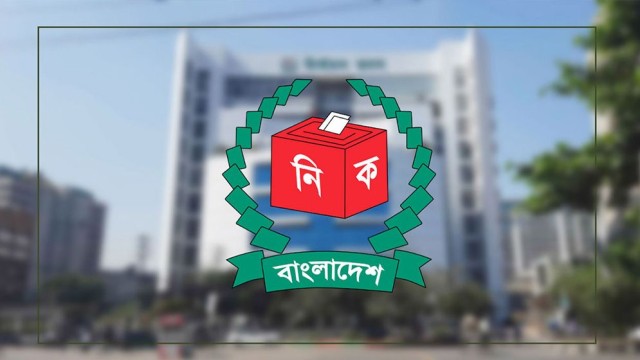


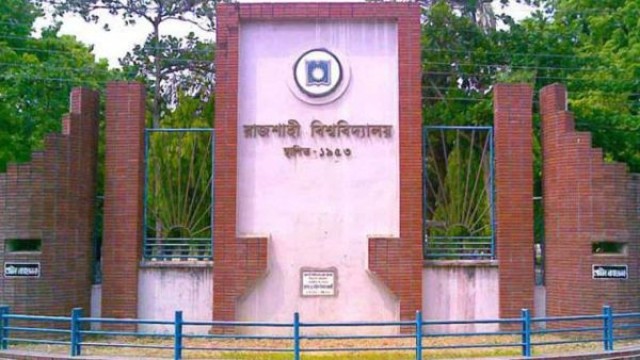











Comment: